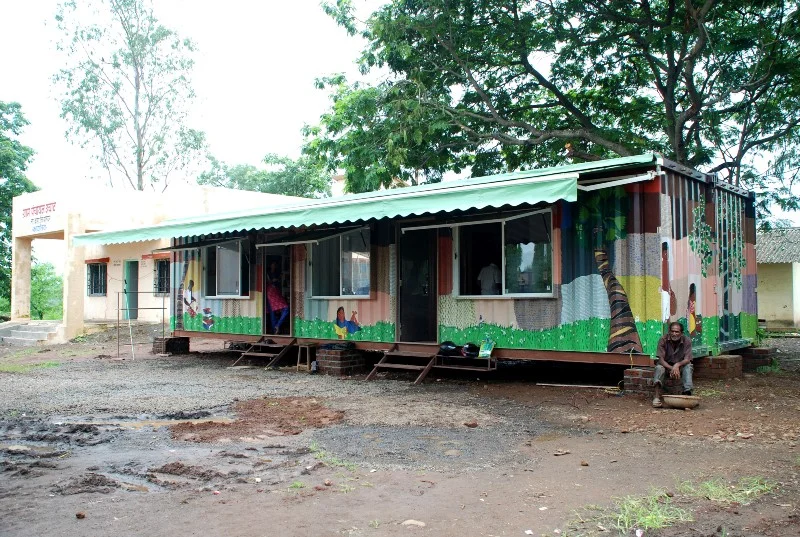Paaramparya - A Window To A World Of Forgotten Foods

Stepping into the Paaramparya store is like entering your grandmother’s kitchen. The wooden shelves lining the walls bear familiar stainless steel bins and round earthen pots storing tamarind, and cane baskets with the day’s vegetables and fruits sit on the mosaic floor.
Started in 2015 by Priya and her husband, Rajkumar, Paaramparya, as its name suggests, seeks to return to tradition and revive as many lost foods as possible that earlier generations worked in rhythm with nature to conserve. The store sells natural, chemical-free foodgrains, pulses, millets, cold-pressed oils, and indigenous fruits and vegetables procured directly from farmers across South India. Also available are spices and freshly ground flour and other value-added items such as millet flakes, snacks and sweets.
In keeping with its message of healthy, earth-friendly living, Paaramparya is a zero-waste shop which does away with all forms of plastic and other non-biodegradable packaging. Goods are packaged in brown paper or cloth bags, but customers are strongly encourage to carry their own containers and bags to the store.In a conversation punctuated by the sounds of millet batter being ground and chutneys being pounded in the store’s kitchen for customers to take away, Rajkumar informs me that the space is more than just a store. “It is a medium through which we want to educate ourselves and others about living sustainably,” he says. The couple, both of whom quit their full-time jobs to devote their lives to Paaramparya, say that food, being at the core of ideas about health and wellness and a topic that everyone easily relates to, is the perfect starting point to discuss broader aspects of sustainability.
In a world increasingly swamped with hybrids and exotic produce, Paaramparya stands out by exclusively promoting traditional, seasonal, native produce. The bins boast a staggering array of forgotten varieties of rice, unpolished millets, and pulses from farmers in Tamil Nadu, Andhra Pradesh and Karnataka. There’s black Kavuni rice known for its antioxidant properties, the famous Mapillai Samba, fragrant bamboo rice, the healing Karun Kuruvai, the royal Rajamudi, and the Navara, known for its use in Ayurvedic treatments.
“To eat the best food, produce your own” proclaims a board at the store’s entrance and I learn that Rajkumar and Priya are passionate proponents of terrace gardening - the sure shot path to safe food. The next best alternative is to know the source of your food, he says. Having travelled 20,000 kilometres meeting farmers across India, Rajkumar has witnessed the country’s agrarian distress up close, marked by mono-cropping, large-scale commercial farming, loss of seed control and biodiversity.
“There are very few farmers who have resisted the lure of industrialised, chemical farming, continue to practise agriculture with time-honoured techniques and farm-based inputs, and are self-sufficient with what they produce.”
Paaramparya is as much about supporting this dwindling agricultural community as it is about promoting sustainable food practices in cities.
Despite the absence of branding and certifications, Paaramparya’s largely trust-based network of customers is growing. The couple regularly delivers groceries to gated communities and individual consumers in Bangalore. “My dream,” he says, “is to be able to connect urban consumers directly to the source of their food - to farmers and farms where safe and healthy food is grown.”
Staying away from packaging, branding, and advertising has allowed Paaramparya to keep its items reasonably priced but there are several challenges of cleaning and storage which drive up the prices of perishable items.
“Today, our food systems are broken,” says Rajkumar. The term ‘organic’ has been widely commercialised and organic food is readily available in cities. Yet nobody knows for certain what organic food is or how to identify it. Similarly, we are rapidly losing thousands of varieties of traditional, indigenous crops to industrialised, monoculture-oriented farming and hybrid varieties and customers are none the wiser and farmers powerless.
Spaces like Paaramparya, by serving as a conduit between the rural and the urban, by linking places where food is produced and consumed, enable one to observe and make sense of our changing diets and their impact on the eco-system we are part of.
Paaramparya is located at #1004, Shop no. 4, 9th Main, 7th Sector, HSR Layout, Bangalore - 600102.
Maya is a social researcher by training. Her writing has appeared in Scroll, YourStory and The Alternative. She is the Founder of Eartha and tweets @Maya_Kilpadi.






